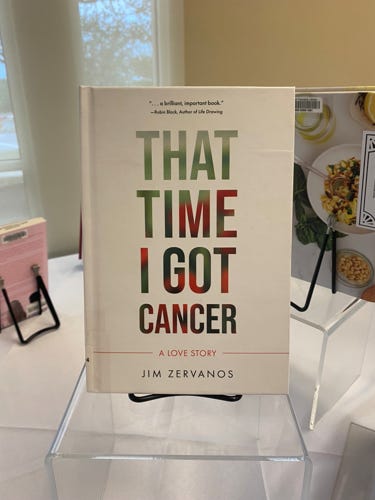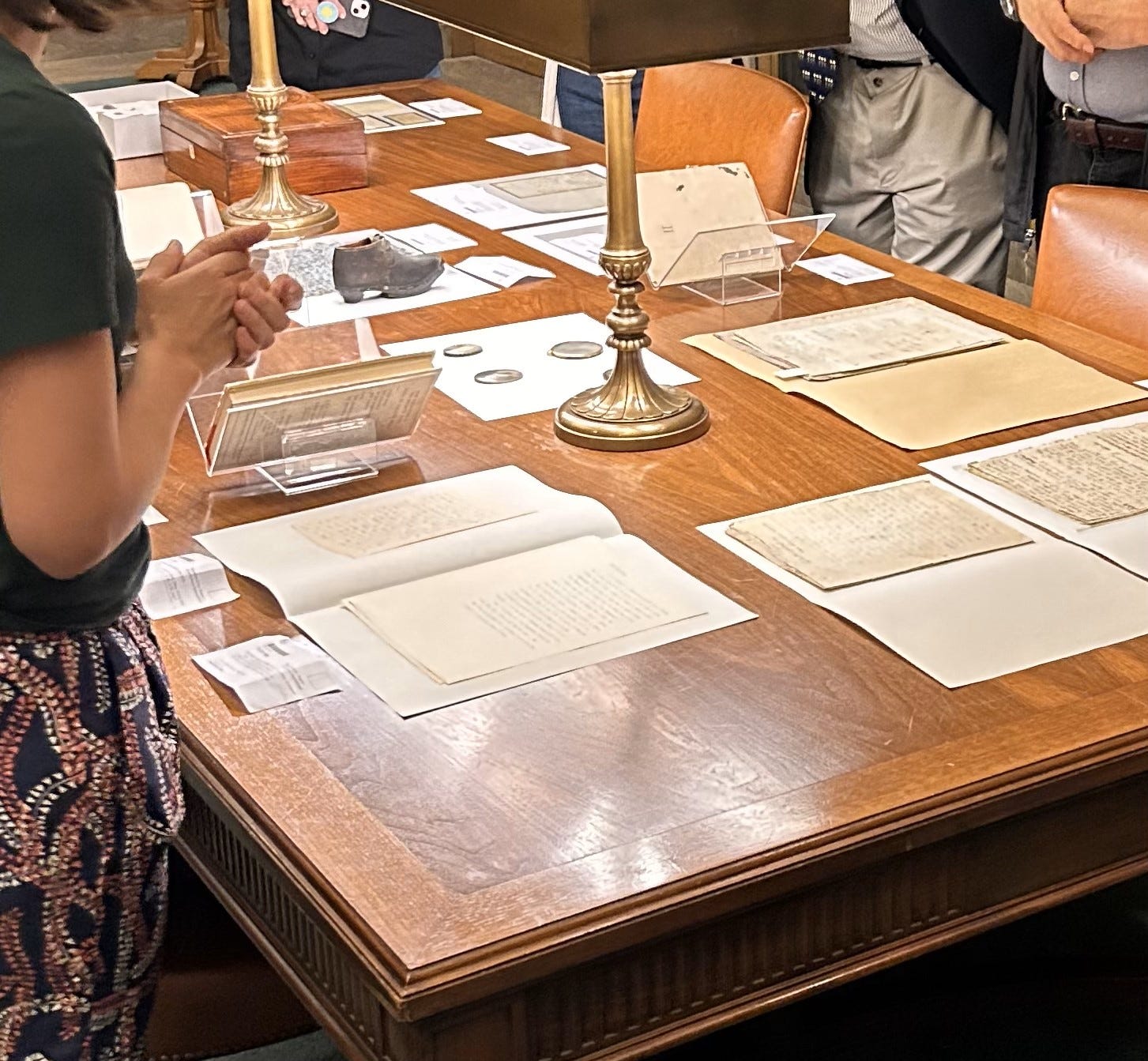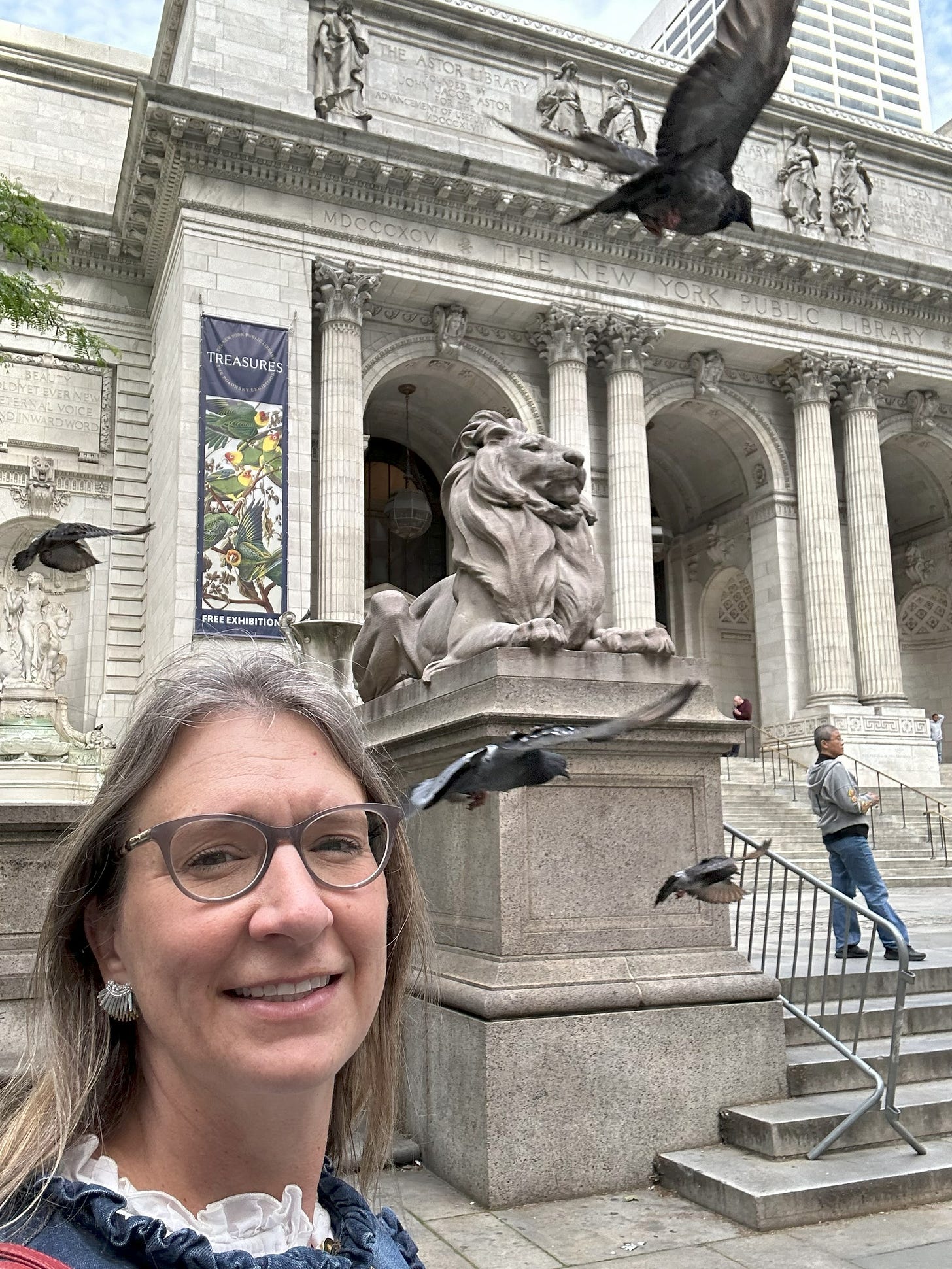Have you set any Google alerts? At some point I must have set up alerts for “cancer survivorship” because every Tuesday, a curated list of “hits” arrives in my inbox. Often, these are highlights from local newspapers of all of the amazing things you survivors and co-survivors are doing out there.
Sometimes the list includes an interesting conference announcement that I try to remember to share in the Cancer Culture chat.
A few weeks ago, this headline caught my eye:
Manheim Township Public Library Introduces Cancer Survivorship Collection
The article was from Lancaster Online, a daily newspaper based in Lancaster, Pennsylvania. Part of a family-owned media conglomerate, Lancaster Online includes features like the one below.
After a brief detour to meet these precious felines, I clicked back to the article that brought me to the page.
The piece opened with an interview with a nurse practitioner at the local cancer center. “One of our cancer survivors had reached out to me saying that she felt that books were a great comfort and resource,” the nurse practitioner said, “Especially when active treatment has stopped … and you’re left with so many questions of how to move forward.”
Having received similar comments from patients before, staff at the cancer institute approached the Manheim Township Public Library to see what resources the library had for cancer survivors. They discovered that no collection existed and decided to work with local librarians and cancer survivors to create one.

The article continued, '“during the curation process, the team intentionally avoided making the 64-piece collection a hub for medical jargon ladened references. Instead, they sought to highlight stories that spoke to the human aspects of cancer, including cookbooks, spirituality books, memoirs and children’s books.”
I’ve always loved libraries (any fellow Book-It grads out there??), but recently have become aware of their position in our communities as more than just lending books.
Earlier this year, for example, I completed the audiobook version of
‘s excellent narrative called The Library. This touching homage to/history of to the San Francisco Public Library opened my eyes to the varied roles libraries have played in our past and present.And while attending my first Biographer’s International Organization conference in New York this spring, I had the opportunity to tour the archives of the New York Public Library (NYPL).
The NYPL has one of the largest archive collections on the planet. This collection includes the largest manuscript holdings of Virginia Woolf, a first edition of the Star-Spangled Banner, a lock of Walt Whitman’s hair, and the death mask of poet e.e. cummings. (You can watch a short video about the oddest parts of the collection here.)
The best part is that any NYPL card holder can apply to view parts of the collection FOR FREE! Unbelievable.
The archivist had randomly pulled an 1812 letter in which author Fanny Burney described her recent mastectomy to her sister.

A recent study published in the Journal of Cancer Information asked 5000 cancer survivors what sources they used for finding information on cancer.
Health care providers were the most common source followed by the internet. Family and friends were a distant third and libraries/books were not even mentioned.
Surprisingly, a quarter of survivors had not sought any information.
Cancer survivors seeking out books seems so quaint when supposedly all the information that we need is available at our fingertips or in our hands. And yet, time was, that the even the library didn’t have much to offer cancer survivors.
On June 15, 1974, journalist Rose Kushner felt a lump in her left breast while she was taking a bath. She recalled the moment in her memoir “I was not examining myself for suspected cancer. All I was doing was shaving under my arm.”

After an exam, her doctor reassured her that all was likely fine, but suggested she undergo a new test called a “xeromammogram,” what we now call a mammogram. Kushner was also scheduled for a now debunked technology called a thermogram.
“The session over, I drove to our public library and looked up breast cancer in the card catalogue. There was a listing for just one book — What Women Should Know About the Breast Cancer Controversey, by Dr. George Crile, Jr,” Kushner wrote later.
One book! On breast cancer! Can you imagine?
Kushner lived in a suburb just outside Washington, DC and yet, just 50 years ago, there was only one book (and even that written by a man) to help her understand what was happening to her body.
As the project at the Manheim Township Public Library shows, we’ve come a long way in 50 years. Endless resources are available in person, print and online for most cancers. And yet, a quarter of patients in that recent article didn’t reach for any of those. I wonder why.
Less Radical
Less Radical is the story of Dr. Bernie Fisher, the surgeon-scientist who not only revolutionized breast cancer treatment, but also fundamentally changed the way we understand all cancers.
He was an unlikely hero-- a Jewish kid from Pittsburgh who had to make it past antisemitic quotas to get into med school. And the thanks he received for his discoveries? A performative, misguided Congressional hearing that destroyed his reputation and haunted him until his death.
If you or someone you know has had breast cancer, Bernie is a part of your story-- and you’re part of his. I can’t wait for you to hear it.








When I was diagnosed with a borderline phyllodes tumor of the breast in 2019, I used my local public library extensively. I was able to check out or request books on reconstruction and treatment and memoirs and social critiques and narratives about cultural aspects of cancer, particularly breast cancer and mandatory positivity and "pink ribbon" culture. Having a rare type of tumor, it was also very helpful to use Inter Library Loan to request free PDFs of paywalled journal articles about phyllodes tumors and, as I was making my decision around reconstruction, to be able to access the literature exploring physical, cosmetic, and psychosocial outcomes for women who made various reconstruction choices (none/implant/tissue).